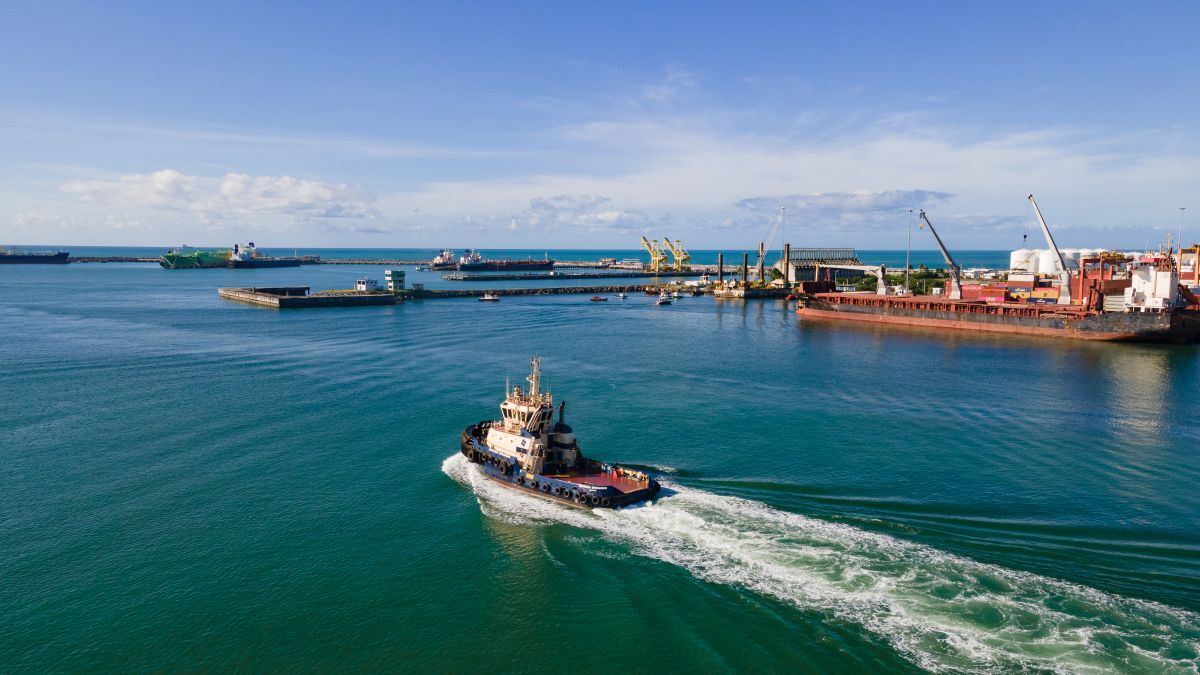 Tug Svitzer Eduardo operates in Suape, Brazil (source: Svitzer)
Tug Svitzer Eduardo operates in Suape, Brazil (source: Svitzer)
New opportunities will arise in Latin America as shipping companies request lower emissions from harbour towage
Svitzer’s focus for its operations in the Americas revolves around sustainable growth in the fleet and decarbonisation. The Maersk subsidiary has four tug newbuildings on order in Brazil and one new tugboat on its way from Turkey to bolster its already substantial fleet in the region.
This investment is part of the groups drive to improve efficiency, lower emissions and differentiate its services in a highly competitive market.
Svitzer employs 835 people and operates 80 vessels, delivering marine services in ports across 12 countries in the region. It has four large clusters of operations and countries in the region, says Svitzer Americas managing director Arjen van Dijk.
One cluster is in Brazil, where Svitzer operates in seven ports and has plans to expand. In Argentina, Svitzer operates tugs in four ports. In a cluster around the Caribbean, it operates in multiple ports across many islands.
“We also have our terminal towage cluster with long-term contracts in various countries across Central America, Canada and the Caribbean,” says Mr van Dijk.
“We have a strategy to grow our stronghold positions and believe in a mix of organic growth and consolidation in the market,” he explains.
“We continue to invest in our fleet with newbuild programmes ongoing in Brazil, where the first of a series of four new tugs will be delivered at the end of this year from the Brazilian Shipyard Rio Maguari.”
In addition, Sanmar Shipyards completed Svitzer Rivas in Turkey in April and it will be deployed in the Dominican Republic. “It will strengthen our position as the leading towage provider in the Caribbean,” says Mr van Dijk.
“We are also upgrading our fleet in other countries such as the Bahamas and Canada.”
Svitzer’s investments are also focused on helping its customers lower their scope 3 emissions and reducing its own operating costs, which have risen due to macro-economic impacts such as high inflation in many different countries and rising fuel prices.
“The Americas is a highly competitive market, so we need to differentiate ourselves,” Mr van Dijk continues. “We want to be the frontrunner when it comes to decarbonisation. As part of Maersk and given our global presence, we are uniquely placed to drive this agenda.”
Svitzer as a group is “actively pursuing projects to kick-start adoption of future technologies and fuels we see as making a significant impact on emissions,” he adds.
“At the same time, we are ensuring the current fleet can be upgraded to reduce emissions as much as possible. We have set ourselves ambitious targets, and we are making tangible investments.”
This includes Svitzer’s work with naval architect Robert Allan to develop the TRAnsverse tug design.
“It is the next-generation multipurpose tug and a game-changer in the industry,” says Mr van Dijk. “It will ease the transition from the marine fuel we use today to the future carbon-neutral fuels as well as offer an omni-directional hullform and propulsion, steering forces over the full range of speeds and manoeuvres, and a unique towing arrangement.”
Mr van Dijk says Svitzer’s focus on reducing the industry’s environmental footprint, along with its regional knowledge and tailormade solutions are important for future growth.
“Our strong focus on decarbonisation and sustainable solutions are important differentiators and we know from discussions with our customers that lowering emissions is high on their agenda too.”
“At the same time, we continue to grow our stronghold positions in various markets, by either expanding into new ports or adding new services to our existing operations.In my view, there is no doubt that as part of the energy transition, new opportunities will arise. Sustainability and decarbonisation will become increasingly dominant, which will require the industry to transform.”





